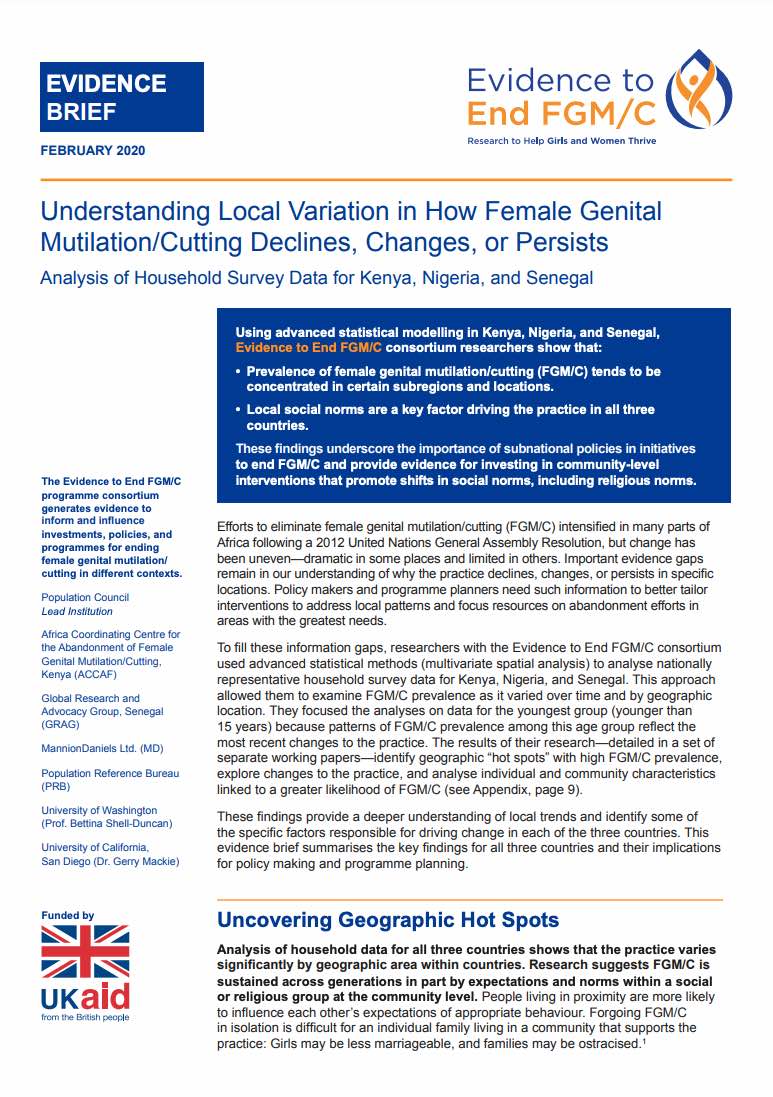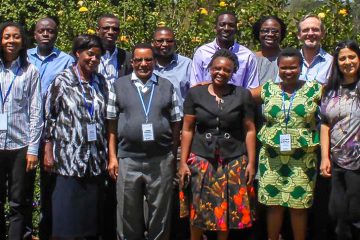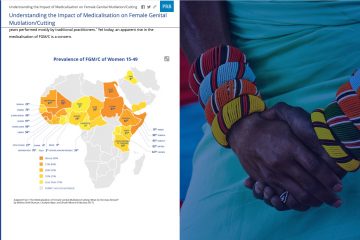
Understanding Local Variation in How Female Genital Mutilation/Cutting Declines, Changes, or Persists
Focus Area
Population Reference Bureau (PRB) is a core partner on the Population Council’s Evidence to End FGM/C: Research to Help Girls and Women Thrive—a UKAID-funded research consortium to help end female genital mutilation/cutting (FGM/C) within one generation. Our role is to build the consortium’s capacity for research utilization and develop innovative tools and products to improve how researchers communicate their findings about FGM/C to key decision makers.
A new PRB-prepared Evidence Brief, “Understanding Local Variation in How Female Genital Mutilation/Cutting Declines, Changes, or Persists: Analysis of Household Survey Data for Kenya, Nigeria, and Senegal,” summarizes the research consortium’s recent findings related to geographic differences in FGM/C trends among girls under age 15.
The researchers used advanced statistical modeling to show that FGM/C prevalence among girls tends to be concentrated in certain subregions and locations in Kenya, Nigeria, and Senegal—with local social norms driving the practice. Their findings underscore the importance of subnational policies in initiatives to end FGM/C and provide evidence for investing in community-level interventions that promote shifts in social norms, including religious norms.

 ">
">


